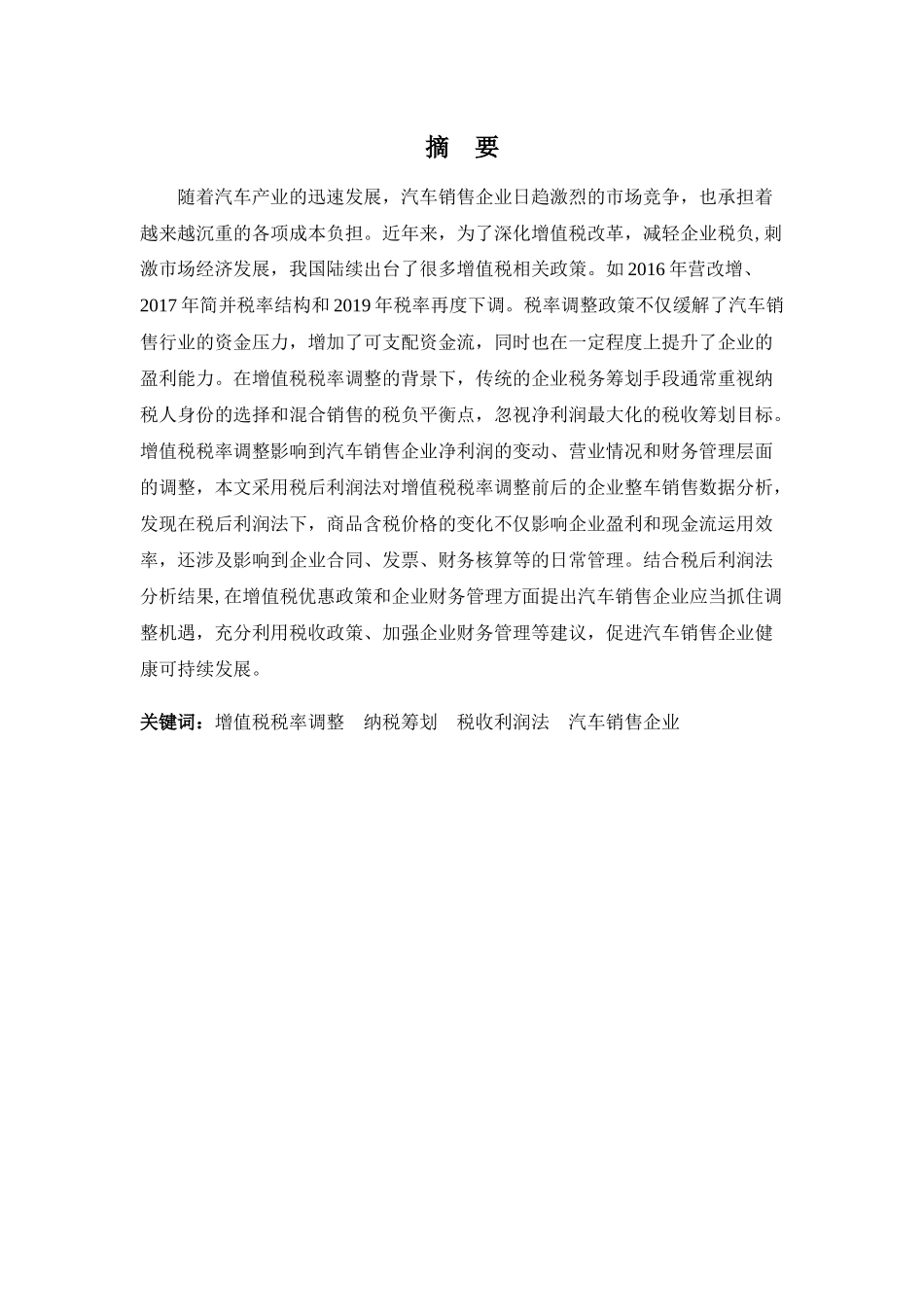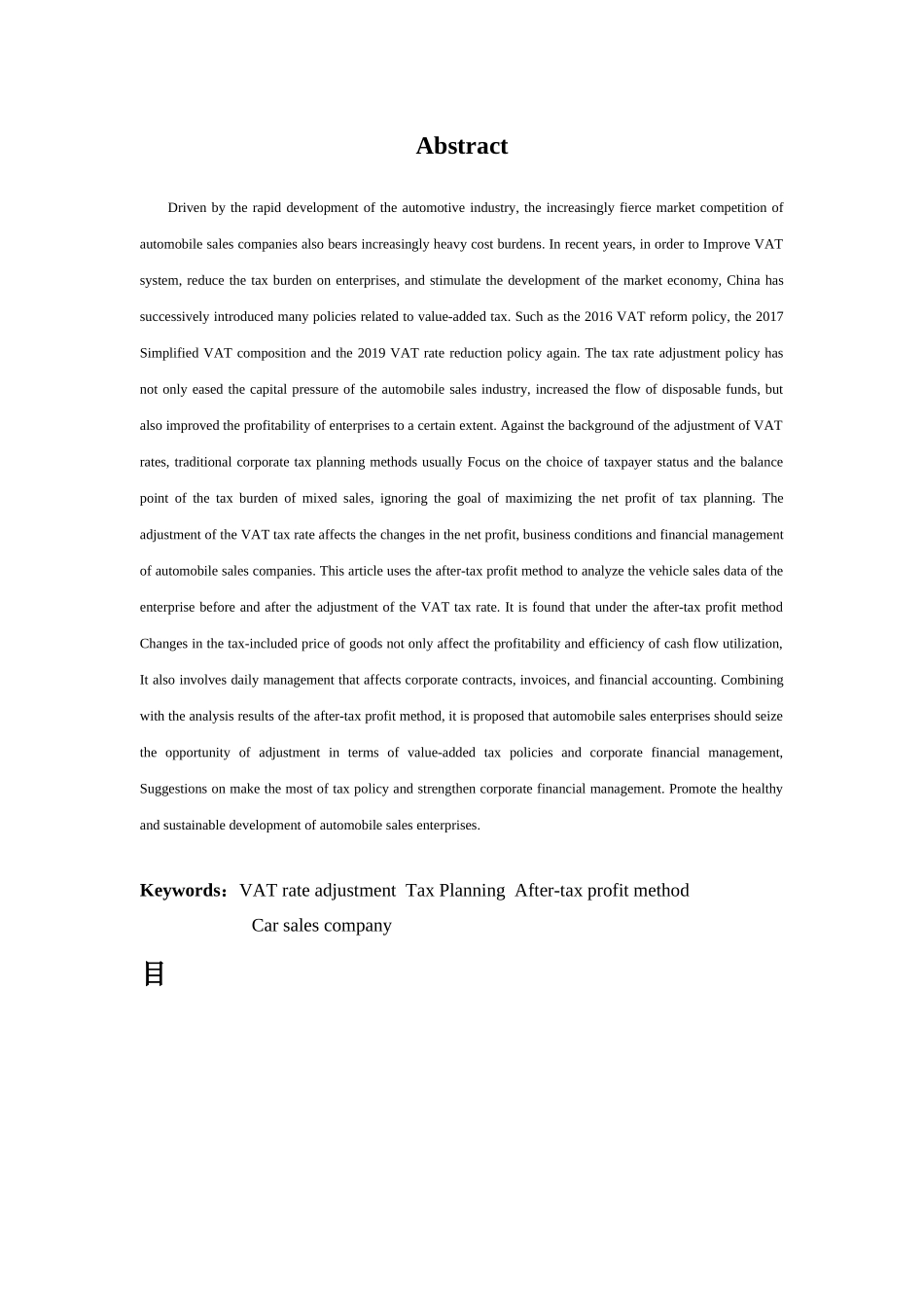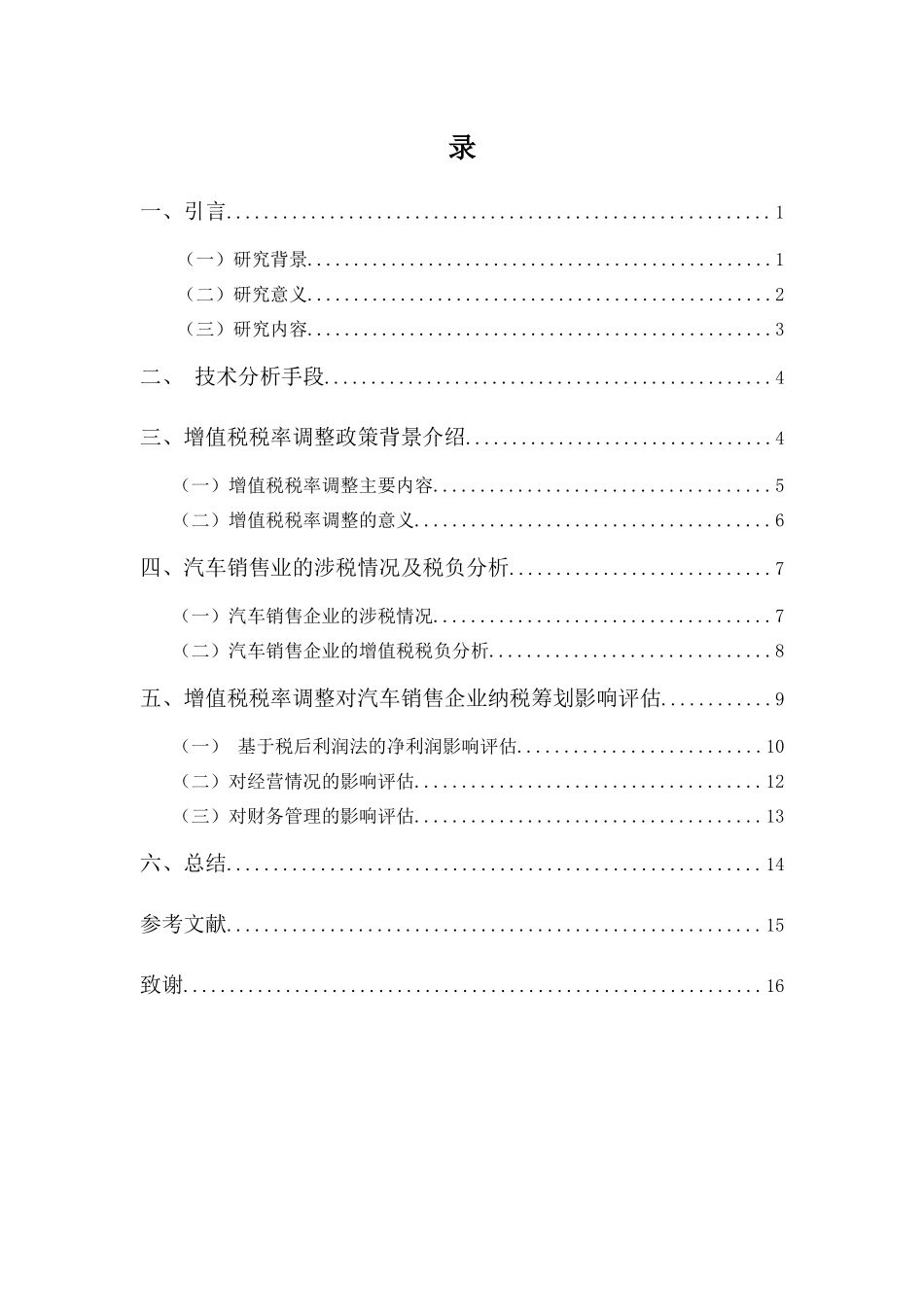摘 要随着汽车产业的迅速发展,汽车销售企业日趋激烈的市场竞争,也承担着越来越沉重的各项成本负担。近年来,为了深化增值税改革,减轻企业税负,刺激市场经济发展,我国陆续出台了很多增值税相关政策。如 2016 年营改增、2017 年简并税率结构和 2019 年税率再度下调。税率调整政策不仅缓解了汽车销售行业的资金压力,增加了可支配资金流,同时也在一定程度上提升了企业的盈利能力。在增值税税率调整的背景下,传统的企业税务筹划手段通常重视纳税人身份的选择和混合销售的税负平衡点,忽视净利润最大化的税收筹划目标。增值税税率调整影响到汽车销售企业净利润的变动、营业情况和财务管理层面的调整,本文采用税后利润法对增值税税率调整前后的企业整车销售数据分析,发现在税后利润法下,商品含税价格的变化不仅影响企业盈利和现金流运用效率,还涉及影响到企业合同、发票、财务核算等的日常管理。结合税后利润法分析结果,在增值税优惠政策和企业财务管理方面提出汽车销售企业应当抓住调整机遇,充分利用税收政策、加强企业财务管理等建议,促进汽车销售企业健康可持续发展。关键词:增值税税率调整 纳税筹划 税收利润法 汽车销售企业AbstractDriven by the rapid development of the automotive industry, the increasingly fierce market competition of automobile sales companies also bears increasingly heavy cost burdens. In recent years, in order to Improve VAT system, reduce the tax burden on enterprises, and stimulate the development of the market economy, China has successively introduced many policies related to value-added tax. Such as the 2016 VAT reform policy, the 2017 Simplified VAT composition and the 2019 VAT rate reduction policy again. The tax rate adjustment policy has not only eased the capital pressure of the automobile sales industry, increased the flow of disposable funds, but also improved the profitability of enterprises to a certain extent. Against the background of the adjustment of VAT rates, traditional corporate tax planning methods usually Focus on the choice of taxpayer status and the b...


